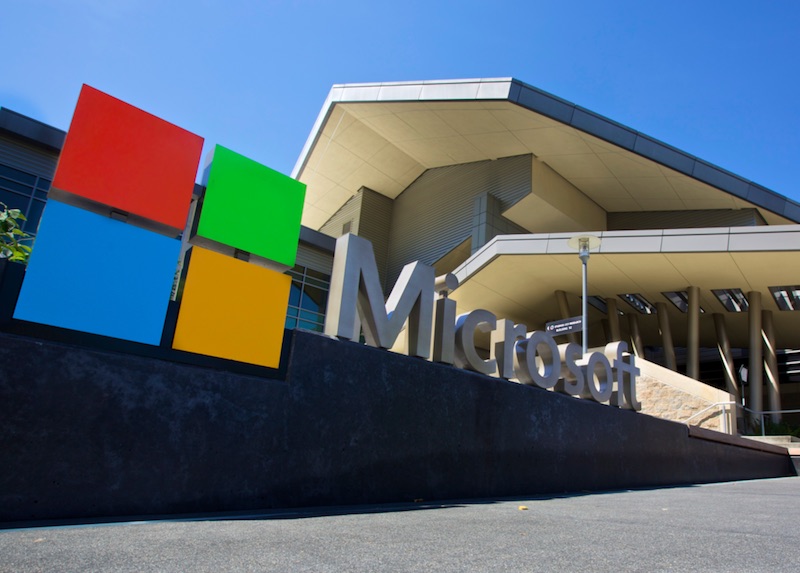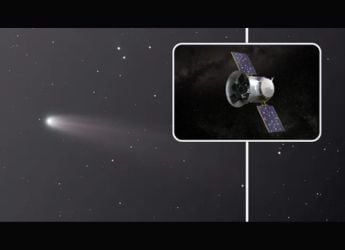- Home
- Laptops
- Laptops News
- Microsoft Says Upcoming Processors Will Only Support Windows 10
Microsoft Says Upcoming Processors Will Only Support Windows 10

Microsoft is curtailing hardware support for older versions of Windows. The Redmond, Washington company has announced that moving forward new processors from major chipmakers will only support Windows 10. This is company's newest move to push users to make the switch to Windows 10, limiting their OS of choice when buying new hardware.
Essentially, all new desktops, laptops, and tablets that come with the latest processors - whether it is from AMD, or Intel, or Qualcomm - won't support Windows 7, Windows 8 or any version of the operating system other than Windows 10. Users of current generation Intel Skylake hardware will also be affected.
In a blog post, Microsoft's Windows chief Terry Myerson announced that Intel's upcoming Kaby Lake processor lineup (based on Intel's next gen 14nm SoCs), Qualcomm's Snapdragon 820, and AMD's Carrizo will only support Windows 10, the desktop operating system Microsoft released to public on July 29. But why? Here's how Microsoft explains it.
"Windows 7 was designed nearly 10 years ago before any x86/x64 SoCs existed. For Windows 7 to run on any modern silicon, device drivers and firmware need to emulate Windows 7's expectations for interrupt processing, bus support, and power states - which is challenging for Wi-Fi, graphics, security, and more," Myerson wrote. "As partners make customisations to legacy device drivers, services, and firmware settings, customers are likely to see regressions with Windows 7 ongoing servicing."
Microsoft said it will only support select desktop versions of Intel's 6th-generation Core processor - better known as Skylake - until July 17, 2017. Post that date, Windows 7 and Windows 8.1 users on Skylake will only receive security and other critical updates for their "on previous generation silicon." The company said that after July 2017, it will seed most critical updates to these owners provided the update doesn't risk the "reliability or compatibility of the Windows 7/8.1 platform on other devices."
The company hopes that users would utilise the 18-month period to switch to a newer version of Windows. Intel and Microsoft said the Skylake platform were designed for each other, and certain features can only be supported on the new hardware. Microsoft has previously committed to support Windows 7 until 2020 and Windows 8.1 until 2023. This means that users, and most especially enterprise users, will be forced to switch to the Windows 10 ecosystem ahead of these deadlines that they might have planned for, if they intend to use new hardware within the next 4-7 years. It could certainly be seen as a rude shock to enterprise users, who may now be forced to stick to older hardware just to run their chosen operating systems.
This wouldn't affect most average consumers as they are happy with running whichever operating system that ships with their computer. However, many will find this as disheartening. The change in company's support policy means that users wouldn't be able to test Windows 7 or Windows 8 - their existing setup - on the newest chipsets.
Get your daily dose of tech news, reviews, and insights, in under 80 characters on Gadgets 360 Turbo. Connect with fellow tech lovers on our Forum. Follow us on X, Facebook, WhatsApp, Threads and Google News for instant updates. Catch all the action on our YouTube channel.
Related Stories
- Samsung Galaxy Unpacked 2025
- ChatGPT
- Redmi Note 14 Pro+
- iPhone 16
- Apple Vision Pro
- Oneplus 12
- OnePlus Nord CE 3 Lite 5G
- iPhone 13
- Xiaomi 14 Pro
- Oppo Find N3
- Tecno Spark Go (2023)
- Realme V30
- Best Phones Under 25000
- Samsung Galaxy S24 Series
- Cryptocurrency
- iQoo 12
- Samsung Galaxy S24 Ultra
- Giottus
- Samsung Galaxy Z Flip 5
- Apple 'Scary Fast'
- Housefull 5
- GoPro Hero 12 Black Review
- Invincible Season 2
- JioGlass
- HD Ready TV
- Laptop Under 50000
- Smartwatch Under 10000
- Latest Mobile Phones
- Compare Phones
- Redmi Turbo 5
- Redmi Turbo 5 Max
- Moto G77
- Moto G67
- Realme P4 Power 5G
- Vivo X200T
- Realme Neo 8
- OPPO Reno 15 FS
- HP HyperX Omen 15
- Acer Chromebook 311 (2026)
- Lenovo Idea Tab Plus
- Realme Pad 3
- HMD Watch P1
- HMD Watch X1
- Haier H5E Series
- Acerpure Nitro Z Series 100-inch QLED TV
- Asus ROG Ally
- Nintendo Switch Lite
- Haier 1.6 Ton 5 Star Inverter Split AC (HSU19G-MZAID5BN-INV)
- Haier 1.6 Ton 5 Star Inverter Split AC (HSU19G-MZAIM5BN-INV)

















